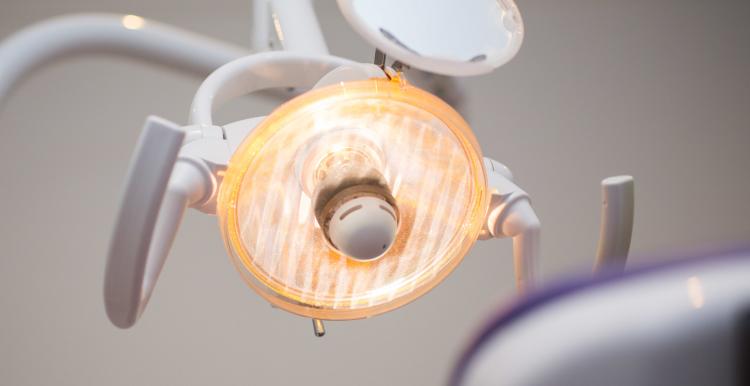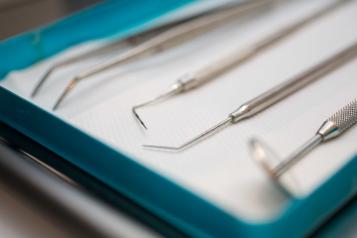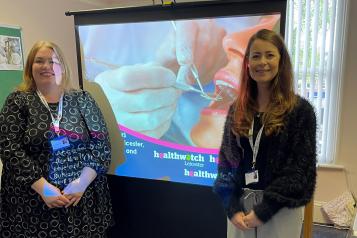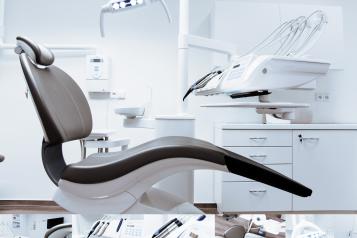Stakeholder NHS dentistry and Covid-19 update - June 2021

As you are no doubt aware, we are not yet able to offer people a dental service in line with the care they would have experienced before the pandemic.
Last year we set up 90 urgent dental care clinics across the Midlands to treat those patients who needed emergency care, and other dental surgeries have since reopened offering treatment. Levels of NHS dental activity in the Midlands have risen safely and significantly.
However, dental teams continue to face real challenges. There are important infection prevention and control measures that dentists have to abide by to ensure the safety of their patients, staff and themselves. This includes social distancing as well as ventilation and cleaning between patients.
This has an impact on the number of patients that a dentist can see in a single day, and in line with dentistry’s standard operating procedure dentists are continuing to prioritise patients with the highest need or priority such as children and those most at risk of oral disease. There is also a significant backlog of people who will not have seen a dentist recently. When you total up the period during which practices were closed completely and the subsequent months at reduced capacity there has been a whole year’s worth of lost appointments.
There are no circumstances when a practice should prioritise a routine case over an urgent case. It is a condition of the practice’s income that they prioritise all patients who are known and unknown to the practice who require urgent dental care if contacted directly or via 111 services. Ultimately, dentists and their teams are skilled clinicians and they use their clinical judgement to assess and respond to patient need. This will however mean that they are less able to offer routine appointments than was previously the case before the pandemic.
Safely restoring access over the next six months
Our focus is firmly on supporting dentists and their teams to see as many patients as safely possible. Infection prevention and control means a return to normal practice is not yet possible, but we are asking practices to manage a minimum of 60 percent of pre Covid-19 dental activity, and a minimum of 80 percent of pre Covid-19 orthodontic activity in order to care for more patients whilst ensuring that the practices are supported financially to allow them to stay open and continue providing care.
We expect these measures to be in place until October 2021 when they will be reassessed.
Access to a dentist
We often receive enquiries asking how people can register with a dentist.
It is not necessary to register with a dentist. Unlike GPs, you do not have to be on a dentist’s list, and you can move to dentists that are more convenient to you or who have been recommended.
However, not all dentists choose to be NHS dentists. Some only take private patients, some undertake NHS work, or a mixture of both NHS and private. It may however be difficult at present to find a dentist who is taking on new NHS patients.
For many dental practices NHS appointments might be booked for some weeks in the future, and people may be told the surgery is full and not accepting new patients. Practices should, however, be prioritising patients with an urgent need regardless of whether or not you are a regular patient – this is provided that they have the capacity to see you.
This will not necessarily be the case for routine check-ups and many practices still have insufficient capacity to be able to see patients as routinely as they would have before the pandemic. Being seen and treated for an urgent need does not necessarily guarantee that the practice will be able to see you on an ongoing basis.
Patients should not be pressured into private care where they wish to have treatment on the NHS and it should not be the case that you are unable to get an urgent NHS appointment where a practice has capacity to offer routine private check-ups.
Find a dentist - NHS (www.nhs.uk) provides a list of local dentists, although not all may currently be taking on new patients. If you have an urgent dental need then you should contact NHS111 who will provide advice and information on services to contact.
Access to an Orthodontist
We have been receiving queries regarding long waiting lists for treatment.
Patients are welcome to express their preference of location of orthodontic treatment; however, the ongoing effects of the Covid-19 pandemic has unfortunately led to an increase in the waiting times and reduced availability for patients whilst the services recover. Patients who have a clinical need to start treatment quickly may have to travel further than anticipated to receive care such as fitting of braces – particularly in a hospital setting.
We are aware of the current waiting time and are closely monitoring the situation. Guidance has been issued to orthodontists to prioritise urgent referrals and waiting lists should be reviewed on a regular basis to make sure this continues. Any patient who has not yet started treatment will be invited as soon as there is availability – this does mean there may be longer waits than usual for patients waiting for routine care. Patients who have been referred before they turn 18 will remain eligible for NHS funded care even if they start treatment after their eighteenth birthday and will not have to pay patient charges.
Patients that are offered dental appointments in whatever setting, including hospitals, are reminded that they should comply with instructions from practice staff when attending appointments and wear masks (unless exempt) – this is for their own safety and the safety of dental practice staff.


